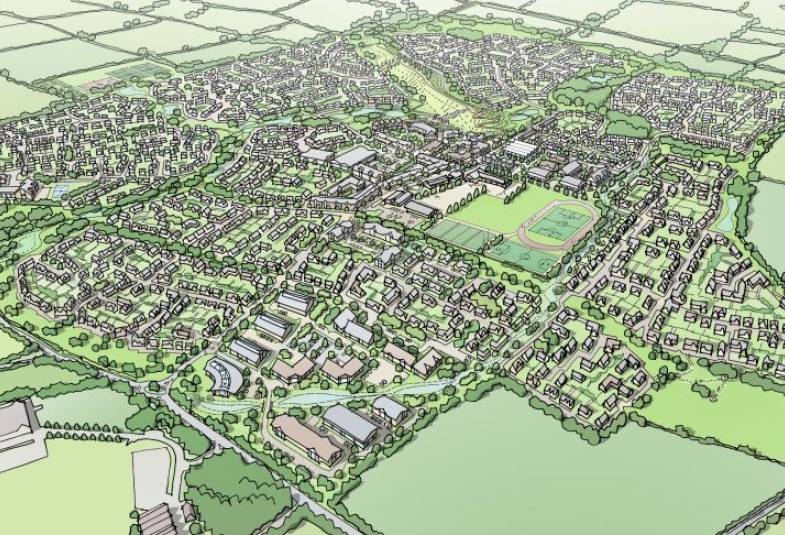24/09/2020
This blog is written by a member of the independent Commission. These views do not necessarily represent the views of the Archbishops' or the Church of England.

Accidentally volunteering yourself for a job. Everyone’s done it. For Sian Rigby, being lumped with a task was actually helpful.
Sian is the Development Worker for Together Leicester, a joint venture between the Church Urban Fund and the Diocese of Leicester which works with churches to tackle poverty and change lives. When she started her job, she researched the social issues that were going to affect the county. She soon found that there was a ‘Strategic Growth Plan’ out for consultation, which would shape the future of the county until 2050. She asked around to see if the Diocese was sending a response. Ultimately, she was asked to do it herself.
It was important for the Church to be responding – as Sian explains, the Diocese is going to be ‘significantly affected’ by the growth being planned. Churches are already feeling the effect of new housing developments: the lack of community spaces can make it difficult to reach out to people. But Sian said that ‘we have no basis for complaining’ without feeding into these plans.
Sian also thinks that the Church has a lot to give. It has a presence in every existing community, so it can act as a bridge between local people and regional institutions. This is particularly key in Leicestershire, where there are tensions between the city and the surrounding county. As one of the few institutions which covers the whole of the county, the Diocese is well-positioned to work for the common good.
Churches can act as a ‘prophetic voice’. This means acknowledging the need for housing, emphasising the importance of community building and affordable housing, whilst also thinking about how the plans will affect current residents.
The process has been really beneficial for Sian – and for the Diocese. It was a great way for Sian to find out about her ‘patch’ early on, and this has influenced the Diocese’s own strategic plans. It’s also prompted churches to think long-term, asking what the needs of the community will be in the decades to come.
Sian didn’t do this expecting to change the strategy significantly, but rather because she felt that the Diocese should be responding. The Archbishop of Canterbury’s Commission on Housing, Church and Community is encouraging this sort of proactive engagement. Churches are in a unique position – they represent existing communities, but they also have a vision for building God’s kingdom long-term. As Archbishop Justin Welby said, our country is changing more than at any time since 1945. As churches, we should be speaking into this public conversation, to ensure that the plans are aligned with Christian values for housing and community.